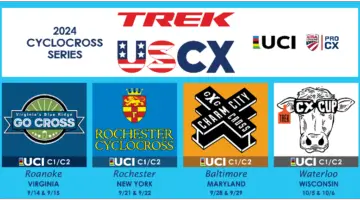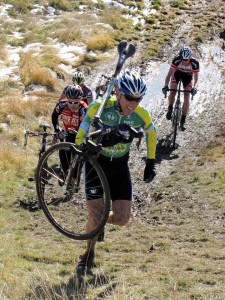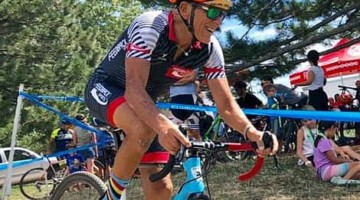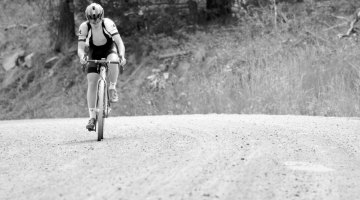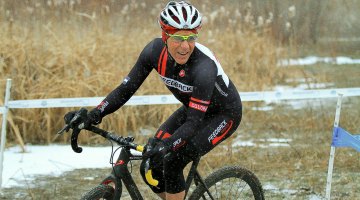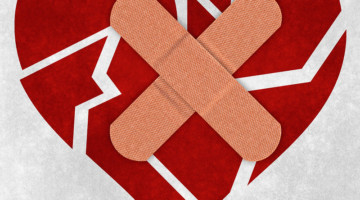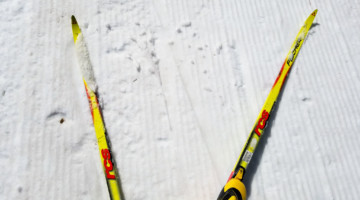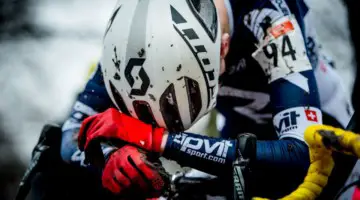Lee Waldman has talked a lot lately about his off-season motivation issues. Today, he’s looking at what really matters: the friends we ride with.
by Lee Waldman
I have this friend, let’s call him “Count” because that’s what he calls himself. Not “the Count,” just Count. He and I met while riding at the back of a group training ride gone bad. While the rest of the group submitted to a lecture by the police for out-of-control riding, I picked his brain about the relative merits of Modolo shifters. They happened to be some of the precursors of later generations of brake lever shifters. I was curious. It was obvious three minutes into our conversation that this was a guy who knew his bikes. But it was only later in our friendship that I found out just how much Count knew.
Jump ahead almost 30 years and Count (his real name is David) and I are still friends and training partners when we can. I catered his wedding. He loves my father. I think he’s probably my oldest close friend. As far as friendships go, ours has ebbed and flowed, but beneath it all there’s always been a mutual like and respect. David is one of the most well-read, critical thinkers that I know. Our training conversations rarely focus on training, equipment, and the usual stuff. We talk politics, family, reading, the history of bike racing, the whole gamut. I trust David and I respect his opinion. And yes, occasionally we do talk about bike racing.
David turned 63 this year; I turned 62. He’s enjoyed much more success in his career than I have, but over the last few years, my victories (at least my local ones) have just barely begun to creep up to David’s. When we talked over dinner a couple of weeks ago, the conversation circled around the question: why is winning so incredibly important?
David rode the team pursuit in the ill-fated Munich Olympics. The next year, he was a member of the pursuit team that won a bronze medal in the Pan-Am Games. The people he calls friends and close acquaintances populate much of the early history of US track and road racing. He lived in Europe for a while, racing, and ultimately came home to become a physician and talented Masters racer. So, when he talks, I do listen.
When Count and I talk about modern cycling, much of the conversation focuses on drug problems that have plagued the sport for the past decade at least. He describes what, from his perspective, drugs were like when he was younger and racing. According to David, amphetamines were the problem in those days. No EPO, no blood boosting or HGH, no steroids. The riders were looking for any advantage that they could find but, in Count’s words, if a rider could win clean (and many did), then that rider garnered enormous respect from the peloton.
Nowadays it seems as if bike racers will do anything to win. And not just the pros. He and I hypothesize a lot about which local racers — grown men with jobs and families — are using some sort of PED. We have no hard proof, but at our age, you can only train so much.
The question becomes then, is winning really that important? In reality, there really are only a handful of athletes who have the talent and the genes to win consistently at any level. I’ve learned over the course of decades as an athlete that while I can improve my skill set and my physical attributes, there is a ceiling. I’ll get stronger and faster, but will it ever be enough? And as I learned long ago, it really doesn’t matter. For me, the journey is as fulfilling as the destination. I’m sitting here right now, my house is quiet; it’s early in the morning and the sun is just coming up, a tangerine orange on the horizon. It’s the kind of day that keeps me in Colorado. As soon as this piece is finished, I’ll head out the door, not to a race, but for four hours on the bike. And I’ll love it! The air will be fresh, my legs feel good, and I’ll push them hard today. I’ll work, I’ll sweat, and I’ll feel the lactic acid build up. When I get home I’ll feel tired, and happy. Next weekend, I’m doing a 24 hour race. This Wednesday, I’m racing short track. I’ll love both of those competitions. But, if they suddenly went away, I’d still get on my bike this morning and I’d still come home tired.
For me, the thrill is not just in the victory, but in having the courage, the tenacity, the risk-taking mentality to join in the “race.” That’s what makes me a happier and a better person. I’m sure that if I looked around, I could find that connection and hook myself up to something that would make me better. Something that would give me that edge that I can’t get from training. But it wouldn’t be me doing the riding then, it would be the supplements. I’d be winning, but would I be satisfied with myself? I really don’t think so. Right now, when I can stay on the wheel of the younger guy in front of me, when I can stay seated on a steep dirt section that I couldn’t ride before…that’s my victory. Hey, at 62, getting out the door and simply having the ability to ride four hours is winning.
Some of you younger riders who are reading this may not be able to relate. You may be the kind of person who feels as if the only place in a race is first. I agree that’s important, but there’s more. If you limit yourself to only gauging your performance by your wins, you’re setting yourself up for disappointment. If, on the other hand, you learn to take pleasure in the pursuit, you’re going to find what it is that you’re looking for.
Try it, go ride. That’s were I’m going.











